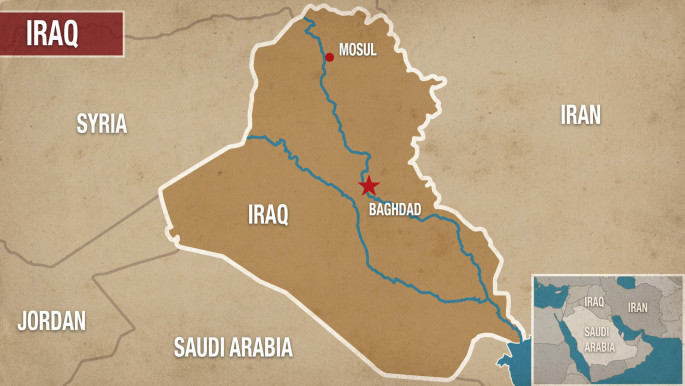Iraq rejects Turkish participation in 'imminent' Mosul battle
Iraq's foreign ministry condemned on Monday a recent "provocative" statement by Turkish President Recep Tayyip Erdogan where he expressed hopes to take part in planned battles to liberate the northern Iraqi city of Mosul, a main stronghold for the Islamic State group (IS).
"Such a statement strains the bilateral ties," a ministry spokesperson said, according to Kuwait's state-run news agency KUNA.
He added that Erdogan's statement was tantamount to "flagrant meddling" in Iraq's internal affairs and a breach of principles that govern States' bilateral relations, noting that Ankara had ignored Baghdad's calls for withdrawing Turkish troops deployed on Iraqi territories.
In his speech on Saturday, when Turkey's parliament approved a one-year extension to an existing mandate to deploy Turkish army personnel in Syria and Iraq, Erdogan said he believed that Mosul could be taken from IS but warned Baghdad and Turkey's Western allies that Ankara had to be involved in any operation and included in the decision-making process.
"Turkey cannot be left off the table. The others don't have such a border (with Iraq). They may want us to stay as spectators but that decision is also going to be made here," he said.
Meanwhile, a senior government official working under Iraqi Prime Minister Haidar Abadi told The New Arab that Turkey's role in the upcoming battles would be limited to logistic support, without participation in any military operations.
The extension of Turkey's mandate - originally approved by parliament in October 2014 and first extended in September 2015 - permits Turkish military action against IS and other groups deemed by Ankara to be terrorists such as the Syrian Kurdish political group the Popular Protection Units (YPG) which has close relations with the Turkey-based Kurdistan Workers Party (PKK).
Erdogan said there was an "inconsistency" in the US policy with "part of the US administration working with the (YPG) and part working on policies more sensitive to our interests".
The battle for Mosul
Early on Sunday, Baghdad sent the first three brigades to Nineveh, with military reinforcements and weapons arriving from Baghdad, Nineveh operations commander Major General Najm al-Din al-Jabouri has told reporters.
"Some of the weapons will be used for the first time, including electronic equipment especially designed for urban warfare," he explained.
 |
| [Click to enlarge] |
The Nineveh provincial council said that the preparations for the upcoming battle are completed.
"Our people will soon be salvaged from the injustices of IS," council member Hassan Shabib said, according to a local government-linked website.
On the other hand, IS militants are not preparing to withdraw from the city. Instead, they are building walls, digging tunnels and adding landmines around it, according to local sources.
This has raised concerns about the expected number of civilian casualties, with local human rights groups urging Mosul residents to hide underground during airstrikes, as well as to store water and medical supplies.
The United Nations has estimated that the battle for Mosul could displace a million people, and affect up to 1.5 million civilians in all.
Mosul, which has suffered years of violence culminating in the IS takeover in June 2014, is crucial to the militant group that declared its Islamic "Caliphate" there.
The capital of Nineveh province, Mosul controls strategic trade routes in northern Iraq, notably a key highway to the border with Syria and its second city of Aleppo, while other routes lead to Turkey and to Baghdad.
![Mosul battle preparations [Anadolu] Mosul battle preparations [Anadolu]](/sites/default/files/styles/image_345x195/public/media/images/659BFD0A-4227-46F8-B5D3-C897CD81C4F4.jpg?h=d1cb525d&itok=sYfXt2G1)




 Follow the Middle East's top stories in English at The New Arab on Google News
Follow the Middle East's top stories in English at The New Arab on Google News

![Israeli forces ordered bombed Gaza's Jabalia, ordering residents to leave [Getty]](/sites/default/files/styles/image_330x185/public/2176418030.jpeg?h=a5f2f23a&itok=_YGZaP1z)
